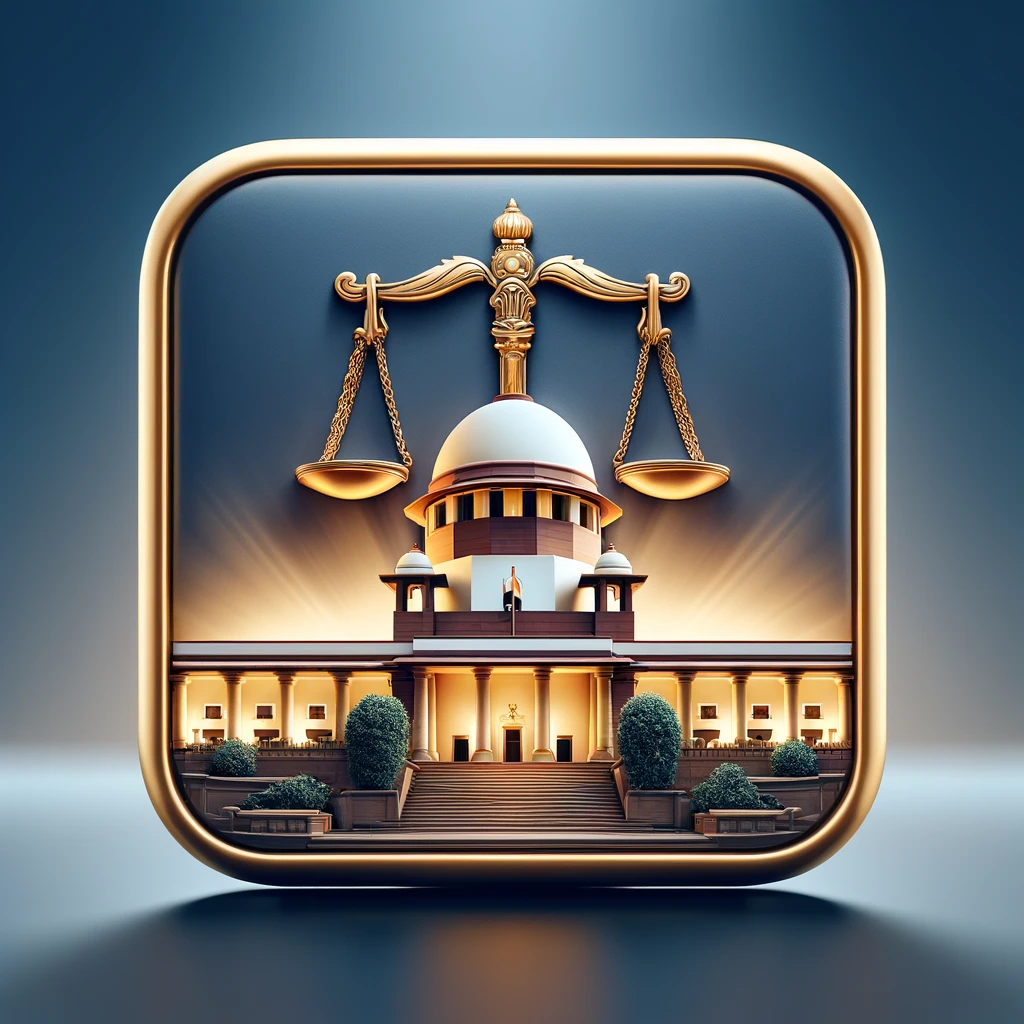

Following India’s independence in 1947, the Constitution of India was adopted on 26th January 1950. The Supreme Court of India was established shortly thereafter, with its inaugural session held on 28th January 1950. Articles 124 to 147 in Part V of the Constitution deal with the organization, independence, jurisdiction, powers, and procedures of the Supreme Court. The Court possesses the power of judicial review, enabling it to invalidate legislative and executive actions that violate constitutional provisions or fundamental rights.
| GS Paper | General Studies II |
| Topics for UPSC Prelims | The Supreme Court, Prevention of Money Laundering Act (PMLA), Chief Justice of India (CJI), Right To Privacy As A Fundamental Right, Section 66A of the Information Technology Act, Fundamental Rights, National Judicial Data Grid, The National Judicial Appointments Commission (NJAC) Act, e-Courts Integrated Mission Mode Project. |
| Topics for UPSC Mains | Significance of Judiciary in Upholding Fundamental Rights and Democratic Values. |
This editorial is based on “The top court as custodian of liberties” which was published in The Hindu on 13/08/2024. The article discusses the Supreme Court of India’s role in upholding civil liberties through its recent decisions.
Understanding the Supreme Court’s decisions and its role in protecting civil liberties is crucial for UPSC students. It aligns with the General Studies Paper 2 syllabus, covering topics like Fundamental Rights, Judicial Review, and the Separation of Powers. This knowledge aids in comprehending the Indian judiciary’s impact on democracy and individual freedoms, which is essential for both Prelims and Mains examinations.
The Supreme Court’s recent decision to grant bail in the Delhi excise policy case is a significant development for UPSC aspirants due to its emphasis on the fundamental right to a speedy trial under Article 21 of the Constitution. This ruling critiques delays in the criminal justice system and the misuse of stringent laws, echoing past UPSC questions on judicial independence, civil liberties, and the judiciary’s role in upholding fundamental rights. Understanding this case helps aspirants grasp the dynamic interplay between legal principles and constitutional mandates, crucial for both GS Paper 2 and the essay paper.
The Supreme Court of India, was established on January 28, 1950, shortly after the adoption of the Constitution on January 26, 1950. Thereby, plays a pivotal role in the Indian judicial system. It serves as the apex court, ensuring the rule of law and the upholding of constitutional values.
Historical Context: After India gained independence in 1947, the Supreme Court was formed as the highest judicial authority. Thus, ensuring justice and interpreting the Constitution. It held its inaugural session on January 28, 1950, marking a significant step in India’s judicial history.
Constitutional Provisions: Articles 124 to 147 under Part V (The Union) and Chapter 6 (The Union Judiciary) of the Indian Constitution outline the structure, powers, and functioning of the Supreme Court. These provisions establish the Court’s authority and independence.
Jurisdiction: The Supreme Court’s jurisdiction encompasses original, appellate, and advisory capacities. Its rulings are binding on all courts in India, reinforcing its role as the ultimate arbiter of law.
Judicial Review: The Supreme Court has the power of judicial review, enabling it to invalidate legislative and executive actions that violate constitutional provisions or fundamental rights. This ensures a balance of power between the Union and the States and protects civil liberties.
The Supreme Court of India is empowered by various constitutional and legal provisions to protect civil liberties, ensuring justice and safeguarding fundamental rights.
The Supreme Court of India has a rich history of landmark judgments that have safeguarded civil liberties and upheld constitutional values.
The Supreme Court of India faces several significant challenges that impact its functioning and effectiveness in upholding justice.
The Bangalore Principles of Judicial Conduct outline ethical standards for judges, ensuring the integrity and fairness of the judiciary.
These values guide judges in maintaining ethical behavior and upholding the judiciary’s integrity.
Addressing the challenges and enhancing the Supreme Court’s functioning requires actionable steps and reforms.
| UPSC Civil Services Examination, Previous Year Questions (PYQs) Mains Q. Discuss the significance of the Supreme Court’s ruling on the right to a speedy trial under Article 21 in the context of the Prevention of Money Laundering Act (PMLA) and its implications for civil liberties. (GS Paper II, 2022) Q. Resorting to ordinances has always raised concerns about violating the spirit of the separation of powers doctrine. Analyze whether the Supreme Court’s decisions on the issue have further facilitated resorting to this power. Should the power to promulgate ordinances be repealed? (GS Paper II, 2015) |
Minilateralism is transforming the global diplomacy as it introduces smaller, targeted partnerships in order to…
India’s GDP Growth Forecast Revised Downwards by RBI The Reserve Bank of India (RBI) on…
India is losing its opportunities to sustain agriculture due to severe soil degradation. Recent studies…
India’s Economic Growth Outlook Revised The Reserve Bank of India (RBI) has brought down India's…
Startup Ecosystem in India has emerged as a global leader, with over 140,000 recognized startups…
India’s GDP Growth Forecast Revised by RBI The Reserve Bank of India had trimmed its…